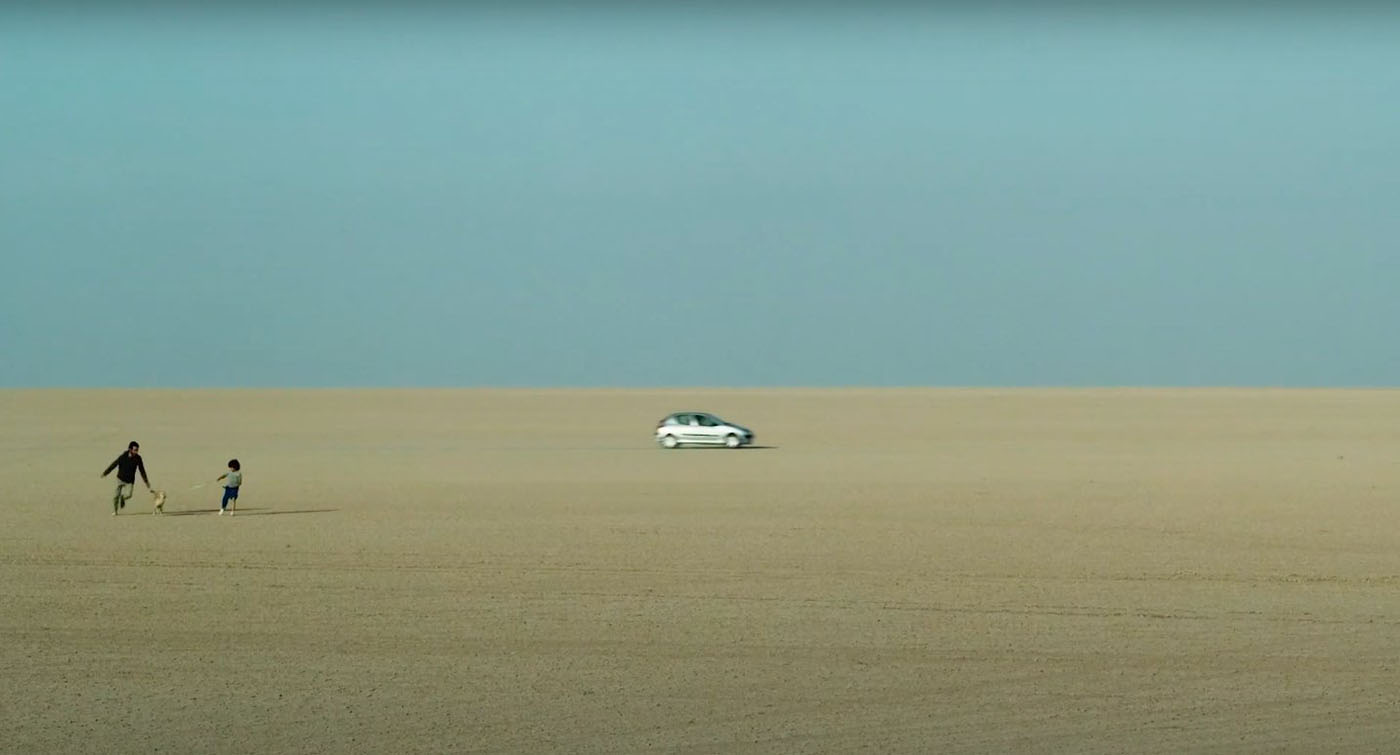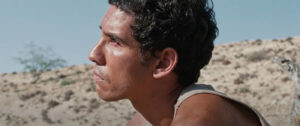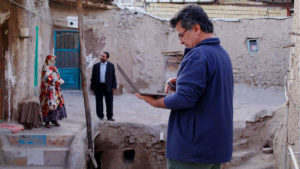Bavand Karim
Hit the Road is the auspicious debut feature from Iranian writer and director Panah Panahi. The film follows a family on a road trip, ostensibly a vacation, through the outskirts of Tehran and beyond. The vacation masks a mission, the motives of which are a mystery. The journey is guided by the cautious father, Khosro (Hasan Majuni), and validated by the heartbroken mother (Pantea Panahiha), while the car is driven by elder son Farid (Amin Simiar). They all work in paranoid secrecy to keep the purpose of the trip hidden from their younger son (Rayan Sarlak), whose exuberant innocence buoyantly sustains the journey. As they reach their destination and the ultimate toll of their circumstances becomes apparent, the reasons for their secrecy, caution, and heartbreak become all too clear. What Panahi presents is a portrait of a family in crisis, one that could destroy them at any minute. Yet they continue on with an irrepressible spirit.
Panahi’s work contains obvious influences from his father, Jafar Panahi, the legendary auteur and icon of Iranian New Wave cinema who is currently banned from filmmaking in Iran. [Iran’s House of Cinema has called for Jafar Panahi’s immediate release from prison. Panahi, 62, was arrested by Iranian authorities in Tehran on July 11, 2022, and is serving a six-year sentence for “propaganda against the regime.” If released, it is expected he will be slapped with a 20-year ban on making or writing films, traveling, and even speaking to the media (Panahi has made five films since the ban was announced). After starting a hunger strike, Panahi was released on bail on Friday, Feb. 3, 2023 —ED]. Jafar, along with Abbas Kiarostami, the departed master filmmaker, is known for featuring child protagonists, rural locales, and vehicles on the move, all for the purpose of crafting contemplative allegories about Iranian life. With Hit the Road, the junior Panahi uses similar techniques to fashion a tragicomedy that honors his father’s continuing legacy while introducing his own unique voice.
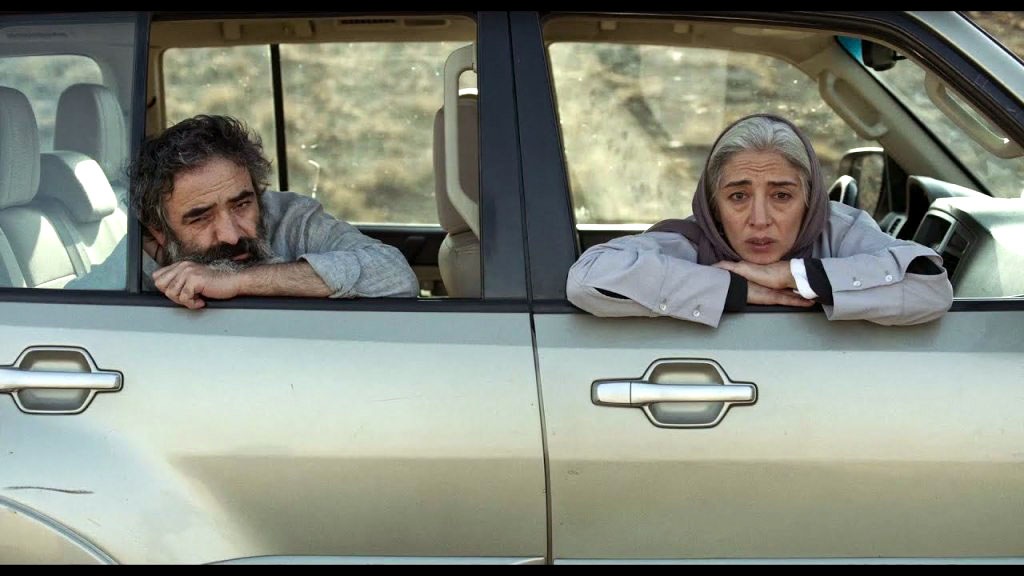
In interviews from Tehran last April, Panah Panahi credited his sister, Solmaz, for inspiring Hit the Road. Solmaz had performed in Jafar Panahi’s The Circle and was arrested by the state at one point. She eventually fled to Paris. “My father decided to let my sister leave the country because they would use her to threaten him,” her brother told the New York Times. He continued:
What I found more interesting than factually presenting contemporary Iran, is this journey of a family letting their child go. They’re sending their child to the unknown. Maybe death. But still, you let your child leave. That’s probably what allowed audiences of the world to relate to this film. It’s not about one group of people who have one specific problem in one point of the world; it’s something more common to our existence as human beings.
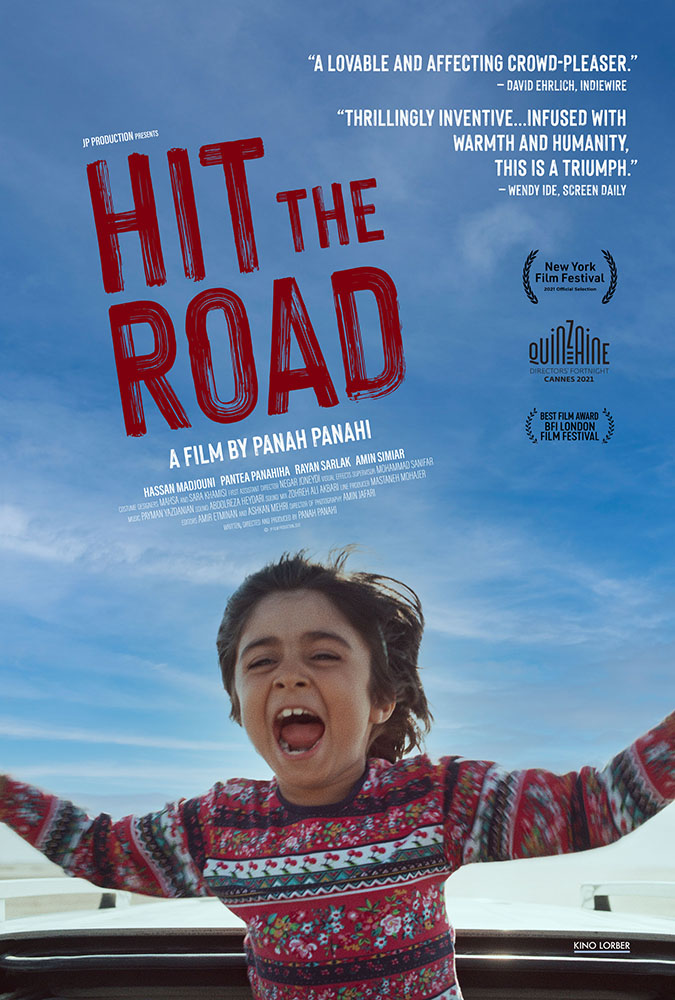 Panahi’s use of magical realism is masterful and apparent from the opening shot of the younger son playing the piano on his father’s leg plaster cast in time with a mournful Schubert piece that serves as the film’s theme. Typically, the actors in the film are not aware of the musical score, which is intended as an emotional marker for the audience. Since the son is playing the score, it implies that he hears it, which dissolves the invisible wall. This form of fourth wall-breaking immediately shifts the audience from being figurative passengers who are along for the ride to active participants in the action, and more importantly, subject to the affections of a loving family — we’re at the mercy of their passions, and involved with them, accountable and vulnerable, just as are the characters.
Panahi’s use of magical realism is masterful and apparent from the opening shot of the younger son playing the piano on his father’s leg plaster cast in time with a mournful Schubert piece that serves as the film’s theme. Typically, the actors in the film are not aware of the musical score, which is intended as an emotional marker for the audience. Since the son is playing the score, it implies that he hears it, which dissolves the invisible wall. This form of fourth wall-breaking immediately shifts the audience from being figurative passengers who are along for the ride to active participants in the action, and more importantly, subject to the affections of a loving family — we’re at the mercy of their passions, and involved with them, accountable and vulnerable, just as are the characters.
The family bonds in Hit the Road perfectly capture the anguish and spirit of modern Iranian youth, who are endangered by their own journey, yet remain hopeful for a brighter future, fiercely devoted and defiant despite their frustration, helplessness, fear, and anger.
Iranian cinema contains a distinct genre of films shot entirely in cars, sometimes covertly, as a means to circumvent state intervention – from Kiarostami’s Taste of Cherry and Ten to the elder Panahi’s Taxi. These endeavors are symbolic, a reminder that in Iran the creation of cinema is itself often an act of rebellion. In a culture where creating films is dangerous, a filmmaker who avoids the law while creating a film about avoiding the law is inherently engaging in a symbolic act of resistance against the oppressive nature of the Islamic republic. Hit the Road is an extension of that lineage.
The exact reason for the family’s rush to the Turkish border remains unexplained, a reminder that the details matter less than the consequences: that Iranian families continue to bear the emotional burden of oppression and injustice. Through its subtextual, layered metaphors, Hit the Road transcends its unspoken subject matter. And the viewer, as both passenger and participant, is complicit in the journey.



